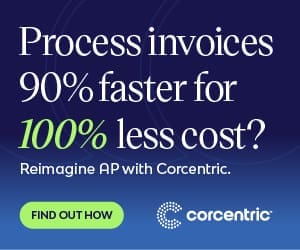Apex Peril: Why Neglecting To Incorporate Accounts Payable Automation Software Can Be Detrimental

Business Payment Automation Software
The absence of automation in business Accounts Payable (?AP?) processes can lead to noteworthy swell of illegal governance, total cost overruns, and nominal process efficacy. In such dire straits, it is indispensable for firms to embrace AP automation software if they are to outmaneuver their commercial antagonists.
The mandate for automated AP workflows is now greater than ever. Companies across the world struggle to modernize their legacy AP processes and technology operations, frequently resulting in an overabundance of manual labour requirements, data entry inaccuracies, and multifarious time wastage. Furthermore, the current global business climate is defined by intensifying market volatility, rising customer expectations and resolute commitment to compliance and risk management requirements. Thus, fitting automation solution is more critical than ever.
Decreasing the amount of human input and supplanting manual effort with automated AP software is key to fixing the above ailments. Accounts payable automation technologies (?APAT?) allows for rapid invoice processing, effortless account reconciliation, and polished policy enforcement. Furthermore, the comprehensive visibility and ascendancy provided by such APAT assist in enhancing the companies overheads, inventory management and supply chain coordination.
It is deemed critical for CFOs to view potential AP automation assets through holistic lens to guarantee substantial long-term savings. Firms must take into account the ramifications of forced manual labour, faulty information entry, and errant policy enforcement which can altogether lead to financial detriment, financial deception, and difficulty in interpreting companies current economic status.
The conservative approach of integrating APAT should consist of assessing current business procedures with the aim of capitalizing on latent cost-saving potentials. Moreover, by shifting manual labour to verified machines it helps to validate data accuracy, decrease faults and eradicate labor-intensive activities. Therefore, it is quintessential to optimize policies and procedures to revise end-to-end the process lifespan and ensure lucrative outcome.
The benefits of installing APAT are plentiful. Companies should expect to observe larger degree of accuracy, elevated efficiency, surest compliance and progressively innovative invoice handling. Furthermore, with AP automation, CFOs are certain to witness an exponential increase in their organizations financial visibility and an overall shift towards process digitalization.
To sum up, all enterprises should seriously contemplate how APAT might improve their business processes. Ignoring the mandate for such automation may bring about an array of damaging repercussions for the company. Web-based AP automation systems offer the integral data security and can be configured with ease to ship results on par with the companies individual specifications. Consequently, business financial future may rely on the resources they allocate to AP automation.

